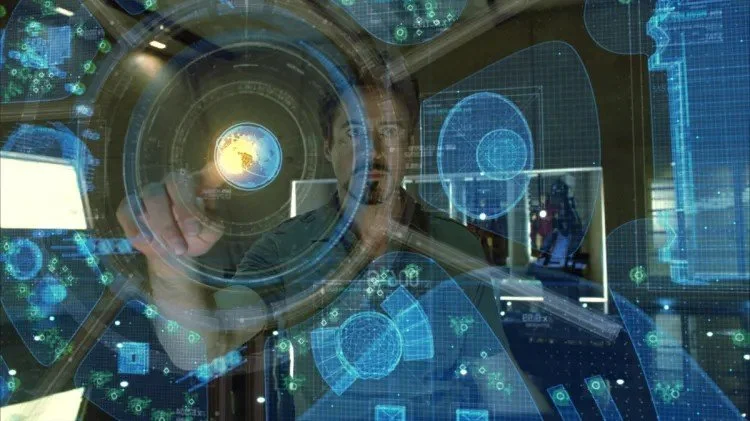I’m A Whiteboard Thinker, How About You?
I naturally recognize patterns with or without intentional thought.
I don't think linearly, which makes me an incredible asset science teams. Why do I say this? Because, in general, I’ve encountered very few scientists that don’t think in a First This, Then That mentality. I mean we’re taught the Scientific Method very early in our career, which is 100% linear.
Ok, so I have no data to support this statement, but I do have 15 years of experience working with scientists and engineers. I'm also married to an engineer, so I live this conundrum daily.
And it's taken me over 10 years to realize that I was working on a completely different plane than the rest of my peers. Things that seemed so obvious to me took weeks, months, sometimes years to convince my colleagues that what I was observing was in fact something to pursue. It was also incredibly difficult to communicate my conclusions because it was difficult to pick a way to linearly express what I was thinking.
Think of a circle. You can make a circle a line by simply severing somewhere along the circle. You then have a line, with a beginning and end. But it might not make any real-world sense depending on where you cut along the circle. So I had to figure out how to organize my thoughts in a way that linear thinkers could follow a long. And I can tell you, that is VERY DIFFICULT. Many, many tears following presentations or conversations that when sideways. Especially in a field that building a science argument means building your idea step-by-step.
But over the years, I've gotten really good at deciphering and translating scientists and engineers into something that made sense to me. And furthermore, translating my ideas into a linear structure that allows scientists to follow along. Now it's one of my superpowers. I can see when the business folks and science folks are talking on different planes.
Now it's one of my superpowers.
I can see when the business folks and science folks are talking on different planes.
So what does non-linear thinking look like? Let me try to explain how it feels. I can't speak for anyone else, but I'd be interested in hearing from other non-linear thinkers in the comments below.
Scientists and engineers think like a filing cabinet with everything filed in some kind of linear order (alphabetical, chronological, etc.). My brain functions like an infinite whiteboard where everything I encounter gets placed onto this whiteboard, and then my mind rearranges it as new pieces of information is acquired. Think of that famous Iron Man scene where Robert Downy Jr. is using his holographic computer. That's how it feels.
My brain functions like an infinite whiteboard where everything I encounter gets placed onto this whiteboard, and then my mind rearranges it as new pieces of information is acquired.
Now look, this happens naturally, there is no forethought into this process, it's just how my brain makes sense of the world. And I'm also not saying I'm unique in this, I'm just saying in my profession (science), this kind of thinking is generally weeded out.
So when I start working with a new client, I like to do things that start my whiteboard base. I call it current state mapping (borrowed from process engineers, ironic, I know.) It's how I lay the foundation quickly. And since I don’t bother with chronology, I usually ask for things in groups (I call them buckets). For example, I'm going to ask for everything you have on X crop in X region for Y product.
So are your data systems setup to do such exercise? Or is your system a filing cabinet and you're going to have to thumb through each draw to pull out this file and that file and 2 weeks later you finally have all the information?
Sidenote: This is also why I'm great at data system and governance processes. I'm basically creating a data system able to retrieve data in buckets, like my brain. I can physically visualize how the datum would move through the data system. (It's kind cool, right!?)
So as you can imagine, in a field of filing cabinets, having a whiteboard thinker is incredibly valuable. We can connect concepts, ideas, or information in ways a filing cabinet can't.
Are you a fellow whiteboard thinker or filing cabinet? How do you process information? Leave your answers in the comment section.


